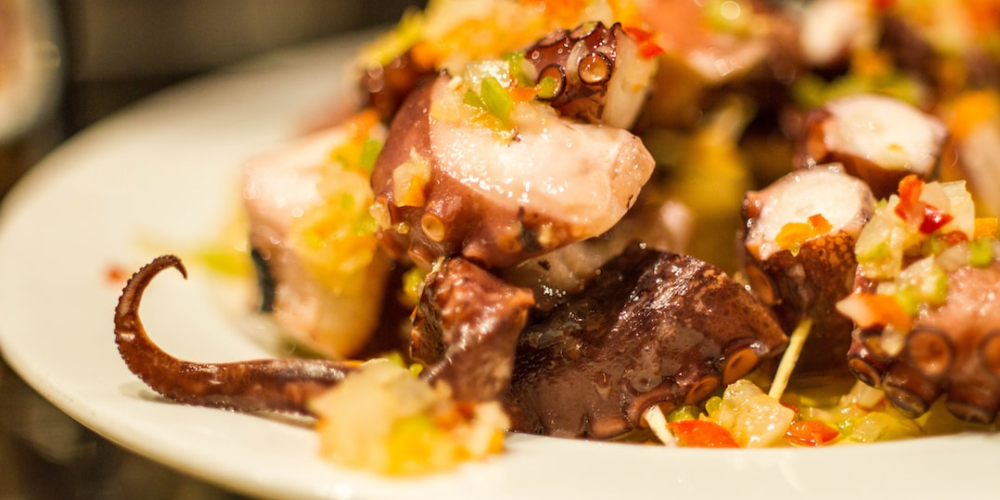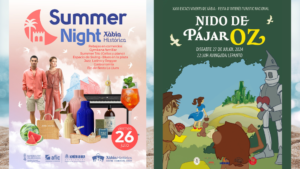¡INOCENTE¡ Did you fall for our Spanish gastronomy legislation story?
Today – December 28th – is ‘El Día de los Santos Inocentes’, which is the equivalent of April Fool’s Day in other countries when pranks are played on unsuspecting victims, the ‘inocentes’ or ‘innocents’.

¡INOCENTE! ¡INOCENTE! Did you fall for it? Or did you see through our little joke? Of course, there is no new legislation coming into force next Monday forcing all bars, including ‘Brit Bars’ to serve Spanish classic tapas and bars. If you did fall for it, don’t worry; you weren’t the only one. If you didn’t, well done. But be prepared for next year! (If you missed it, see the “news report” below.)
Today – December 28th – is ‘El Día de los Santos Inocentes’, which is the equivalent of April Fool’s Day in other countries when pranks are played on unsuspecting victims, the ‘inocentes’ or ‘innocents’.
However, it is an important day in the calendar of the Catholic Church for it commemorates the story of the massacre of all the male babies in Bethlehem on the order of Herod, King of Judea, after being told that the future King of the Jews would be born there. They are considered to be the first Christian martyrs, the ‘Holy Innocents’, although the story has long been thought to have been an invention of the Gospel of Matthew, rather than based on any real event, and these days the religious aspect of the feast day has been largely forgotten and replaced by the pranks, the supposed justification being that Jesus escaped the hands of Herod.
The traditional joke is to put a puppet or a ragdoll – known as “monigotes” – on people’s backs whilst celebrities from TV and screen are often made the butt of jokes on a TV special to raise money for a good cause. In some areas it’s rather like the American phenomenon of ‘trick or treat’ which children going from door to door, making plenty of noise and demanding a ‘payment’ to stop, normally something sweet like the traditional ‘polvorones’ that are sold at this time of year. And if you’re dipping into the sugar bowl to sweeten your tea or coffee, check first as it’s a popular trick to substitute salt for the sugar.
At javeamigos.com, we have produced several classic ‘inocente’ tales over the past few years, including:
- 2012: The rumour that a new four-lane tunnel was to be dug underneath the Montgó mountain to provide quick access to Dénia.
- 2013: The proposal to build a three-stage cable car from the Plaza de la Constitución to the summit of Montgó.
- 2014: The intention to turn the mountain road between Xàbia and Dénia into a toll road.
- 2015: The plan to charge foreign-plated cars to pay for parking by the Arenal beach.
- 2016: The rumour that the Arenal zone was going to declare itself independent from Xàbia.
- 2017: The Province of Alicante planning to adopt GMT along the Costa Blanca region.
- 2018: The proposal to introduce ANPR technology in Xàbia to monitor traffic in the town and check for proper registration.
- 2020: EU-subsidized infrastructure could soon be off-limits to British citizens.
- 2021: Fish and chips awarded regional dish for Costa Blanca region in 2022.
- 2022: Direct connection with A-7 motorway given go-ahead by regional authorities
SPAIN’S BARS PREPARE FOR NEW LEGISLATION TO PROTECT SPANISH GASTRONOMY
Hospitality venues across the country are making preparations to meet new regulations which come into force next Monday January 1st. In a bid to both protect and promote the national identity, the new legislation seeks to ensure that Spanish gastronomy is forefront in the choices available to consumers across the country. Consequently, all bars and restaurants will have to commit themselves to a number of requirements from next Monday.
The first of these requirements is that every venue that offers cooked or uncooked meals will need to offer at least six of the 12 designated Spanish tapas on their daily menu, regardless of whether it be a Spanish bar or an international locale, such as those colloquially referred to as ‘Brit Bars’. These dishes include magro con tomate, gambas al ajillo, croquetas, chopitos, escombros, morro frito, calamares a la romana, champiñones a la plancha, pinchos morunos, pulpo a feira and pescaíto frito and have been selected as representative of Spain’s gastronomic offering.
A regular quality control regime will be enforced to ensure that the dishes meet the minimum standards set by national committee and those failing to meet those levels could be subject to sanction and possible embargo.
All menus – both printed and digital – must have Spanish as the primary language with the necessary translations underneath, such as English, Dutch and German, etc.
With regards to drinks, each venue should be able to offer at least two Spanish beers on draught, such as Mahou, San Miguel, Estrella Galicia, Cruzcampo or El Águila, as well as at least one non-alcoholic option. Wines and spirits produced in Spain should be given priority when offering these drinks.
Finally, all ingredients used to produce both cooked or uncooked meals should be sourced as local as possible to encourage the zero kilometre economy, including but not limited to fruit and vegetables, meat and poultry, etc.






